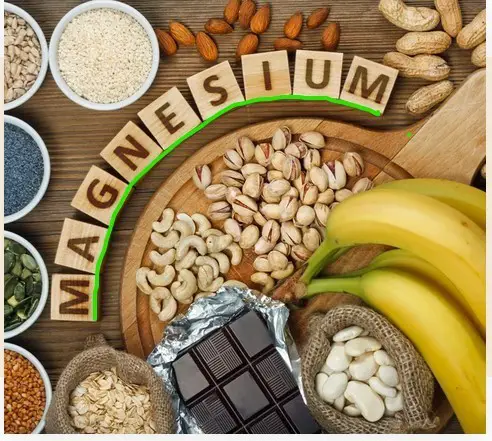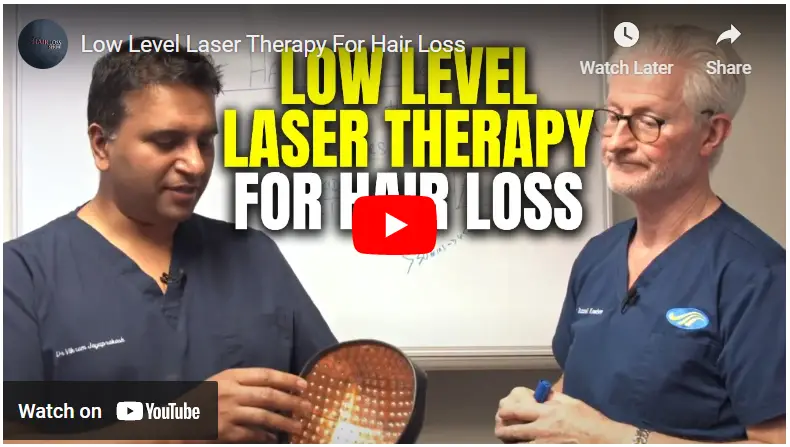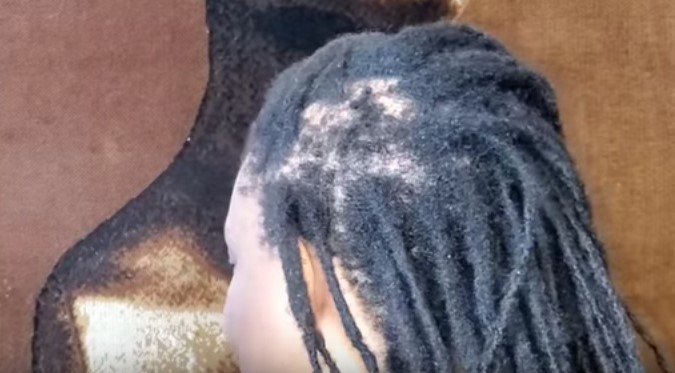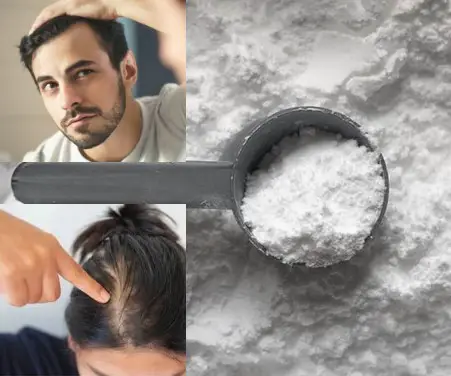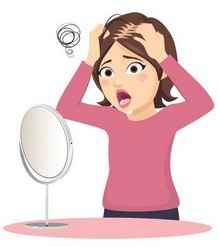Can Magnesium Cause Hair Loss?
Yes, magnesium effect hair growth and its deficiency can cause too much hair loss, but Magnesium also plays a vital role for both the growth of new hair and the maintenance of existing hair on top of your head.
Magnesium can really grow my hair back?, believe it or not, it is one of the most overlooked minerals that can help with hair growth. It is involved in about 700 different processes inside the human body!
How can too much Magnesium cause hair loss and hair growth? It’s because they have a close link. Magnesium stimulates hair follicle development as well as the whole hair growth cycle, thus it has a direct impact on how effectively your hair grows.
We’ll take a look at all the ways magnesium and hair regrowth are linked in this post.
Can Magnesium Cause Hair Loss and Prevents Calcium Build-Up?
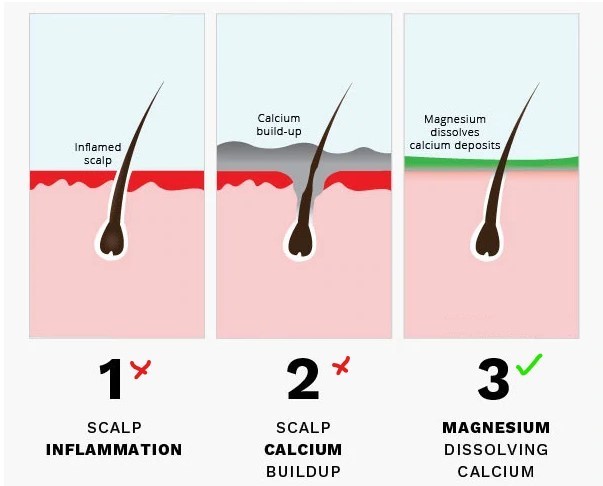
Protein Synthesis
Magnesium has a function in protein synthesis, which helps to maintain hair healthily. The production of melanin and the maintenance of the hair growth cycle are both dependent on protein synthesis. Protein synthesis is lost when magnesium is deficient, which causes issues with the structural and hair growth process.
Magnesium Deficiency and Hair Loss
Can magnesium cause hair loss and deficiency? ‘Yes,’ is the brief response. Magnesium hair loss symptoms can be caused by a variety of reasons, including but not limited to:
- Pregnancy or Breastfeeding
- Type 2 Diabetes
- Celiac disease and Crohn’s disease are examples of gastrointestinal illnesses.
- Magnesium shortage is more prevalent in elderly persons.
- Magnesium loss that is excessive owing to perspiration or urine
- Antibiotics and diuretics are examples of medications.
Magnesium insufficiency can also be caused by nutritional deficits. Nausea and vomiting, a lack of appetite, moodiness, muscular cramps, and weakness are all frequent symptoms of magnesium insufficiency. Low magnesium levels can lead to a variety of concerns in our body, including bone loss, gastro troubles, nerve and muscle function disorders, premature greying, and hair loss.
It’s only natural to underestimate the influence our food choices have on the health of our hair. Vitamin D insufficiency, potassium deficit, iron deficiency, and magnesium deficiency may all occur when we don’t consume the correct mix of vital nutrients. Hair loss caused by a dietary shortage might take many months to manifest.
Magnesium Supplements and Diet
Magnesium Diet supplement insufficiency can be reversed or prevented by taking certain precautions. Nina Ross, Potassium & Magnesium pills are a great approach to boost magnesium levels and promote hair development. Additionally, by eating magnesium-rich foods, you can boost your magnesium intake and make dietary modifications.
Magnesium may be found in the following foods:
- Avocados
- Dark chocolate
- Seeds and nuts
- Tofu
- Beans
- Fatty fish
- Bananas
- Leafy greens
You may also take efforts to treat magnesium shortage by ensuring that any underlying problems are under control and correcting any dietary deficiencies that may be contributing to your hair loss. If you have vitamin D insufficiency, for example, you must guarantee that you improve your condition. A lack of vitamin D might impair your body’s ability to absorb magnesium.
Conclusion
If you have a magnesium deficiency and are suffering hair loss, you can reverse the effects by adding magnesium supplements to your regular regimen. Magnesium supplements, such as Nina Ross Potassium & Magnesium pills, combined with an increase in magnesium-rich diets can help to reverse the consequences of this dietary shortage.
Make sure you address any other underlying diseases or dietary deficits that may be preventing you from getting enough magnesium.
See more about what causes hair loss.
- AI Powered Bald Filter Online 2024: See Yourself with No Hair! - January 19, 2024
- Harklinikken Bad Reviews 2024: Analyzing Negative Feedbacks - January 18, 2024
- How to Get the Alex Eubank Hair | Step-By-Step Tutorial 2024 - January 18, 2024
